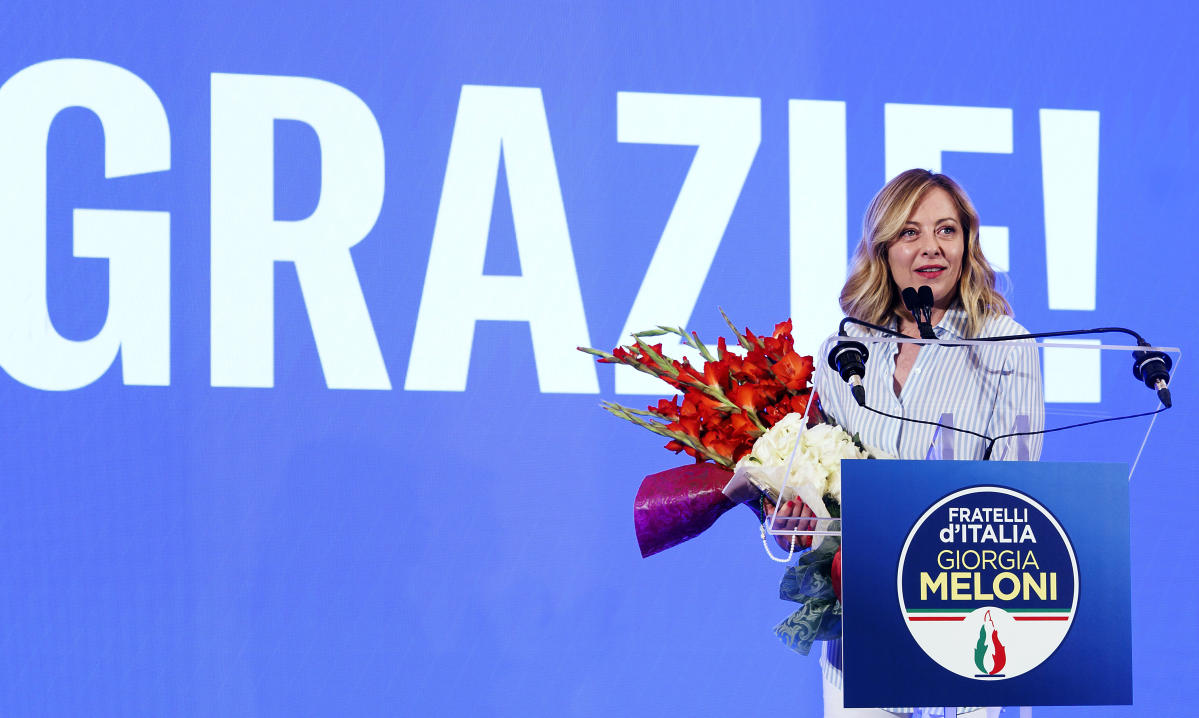BRUSSELS (AP) — For decades, the European Union — which has its roots in the defeat of Nazi Germany and fascist Italy — has confined the nationalist far right to the political margins.
With a strong turnout in Sunday’s elections, far-right forces could now influence or block joint EU-wide policies on migration, security and climate change.
What’s next?
Senior EU party officials and number crunchers met on Monday to find out what kind of groups and alliances could be formed in parliament over the next five years. The party leaders will hold their first formal talks on Tuesday.
EU presidents and prime ministers will hold a summit on June 17 to take stock of the results. They will also discuss whether Ursula von der Leyen should return to the helm of the EU’s powerful executive arm, the European Commission.
The first session of the new parliament will begin in mid-July in Strasbourg, France. Pro-EU conservative parties are expected to have the largest group. Populist or far-right forces have more seats than ever, but their positions differ on many issues.
One thing is clear: the results will delay decision-making and passage of legislation on issues from climate change to agricultural subsidies.
Why does it matter?
The two world wars and the Holocaust started in Europe, and the EU was created to prevent such horrors. Old enemies agreed to open trade and borders and even share their currency, sacrificing some sovereignty to ensure stability after centuries of conflict.
The EU’s internal market has helped keep Europe competitive in a globalized economy. The collective economic weight means the sanctions are biting – one of the reasons why Russia’s Vladimir Putin is taking advantage of divisions within the bloc.
The EU’s restrictions on CO2 emissions have set a global example, as have data privacy protections and Big Tech regulations. All these measures required consensus from 27 different countries and approval by the European Parliament.
Meanwhile, democratic institutions and values in several EU countries have faced increasing threats, from political violence in Germany, Slovakia and Denmark to Hungary’s crackdown on free media and mistreatment of migrants across the bloc.
What about Ukraine?
The EU has sided with Ukraine since Russia’s 2022 invasion, with many in Europe seeing the war as an existential threat. Five EU countries border Russia.
The EU has provided billions of euros in financial and military aid to Ukraine and put the country on a path to EU membership, while imposing round after round of sanctions on Russian officials and companies and Russia’s energy sector.
There is no immediate threat to support for Ukraine, but the election results could complicate discussions about Ukraine.
The nationalist parties in the European Conservatives and Reformists camp – which also includes Italy’s far-right Prime Minister Giorgia Meloni – support Ukraine.
Those in the Identity and Democracy group, which includes France’s Marine Le Pen, are more Russia-friendly – and Hungarian Prime Minister Viktor Orbán remains Putin’s closest EU ally.
Division within the extreme right
These divisions over Ukraine highlight a fundamental challenge for far-right forces in Europe: their focus on national interests makes it difficult to work together at the European level.
Parties on the right side of the political spectrum find themselves in three different pots: the populist ECR; the ID group, home to the more typical hard-right factions; and a large number of non-aligned parties. Preliminary results give these three groups at least 130 seats out of the total of 720.
Their impact on decision-making in parliament and their ability to influence legislation and the appointment of senior EU officials will depend on whether they can put aside differences and how they could work together.
The Alternative for Germany was recently dropped from the ID after leader Maximilian Krah said that not all Nazi SS men were “criminals by definition.”
Hungary’s ruling party, Fidesz, currently has no faction; where Orban will find his support remains to be seen.
Analysts expect that the overall aim of the far-right forces will be to further normalize their nationalist, anti-immigrant thinking within parliament and beyond.
Unrest in France
The big surprise came in Paris, where French President Emmanuel Macron announced early parliamentary elections after his pro-business moderates suffered a crushing defeat by Le Pen’s far-right party in the EU elections.
Macron said he could not ignore the new political reality after his pro-European party was expected to receive less than half the support of Le Pen’s National Rally.
He hopes voters will unite to contain the far right in national elections in a way they failed to do in the European elections.
But Sunday’s decision to dissolve parliament and send to the polls voters who have just expressed their dissatisfaction with Macron’s policies was risky – it could lead to France’s far right forming a government for the first time since World War II will lead.
Macron, who still has three years left in his second and final presidential term, would then have to find a way to work with a prime minister from a party deeply opposed to most of his policies.
The elections will be held in two rounds, on June 30 and July 7.







